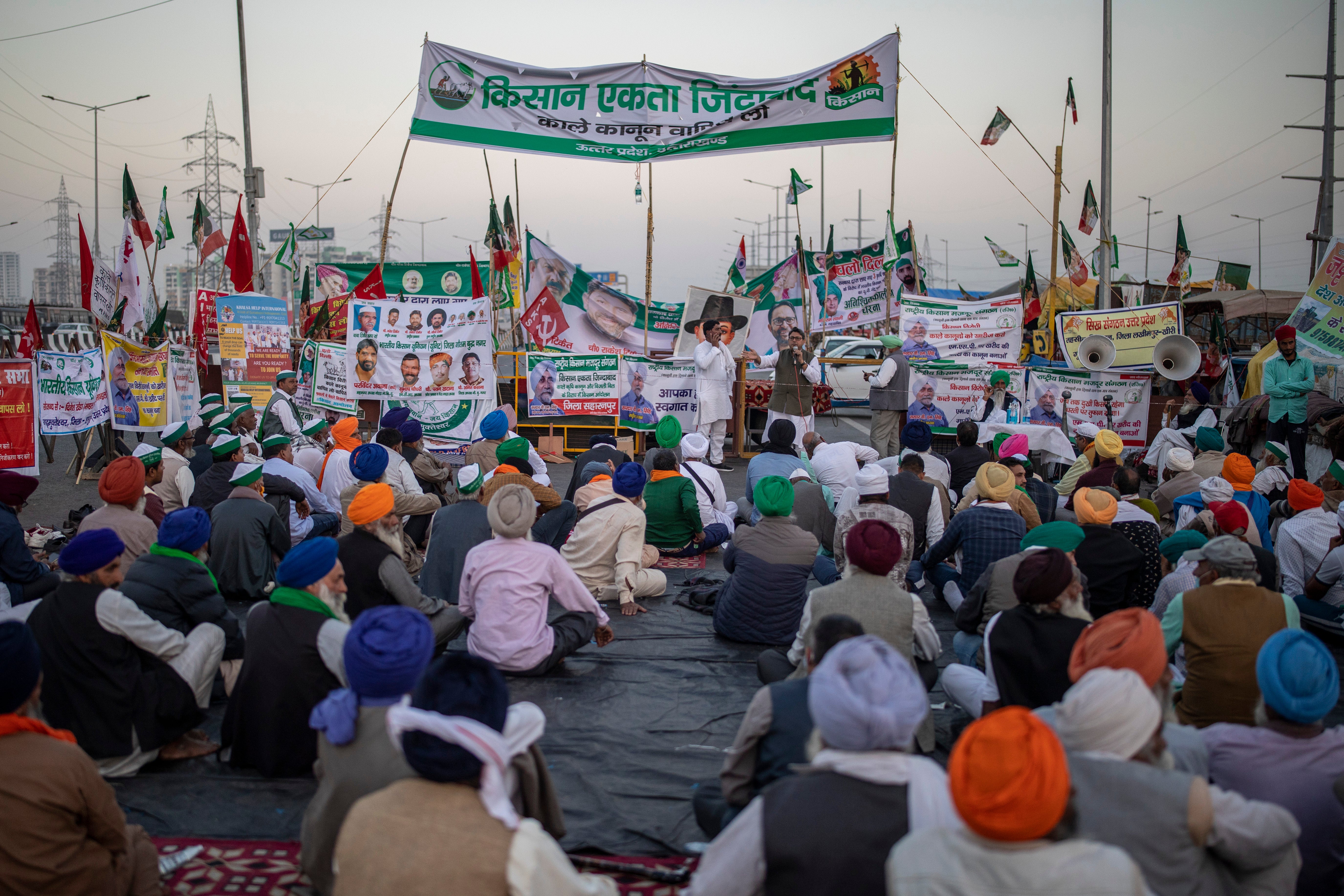Protesting Indian farmers ask top court to scrap new laws
Indian farmers have filed a petition with the Supreme Court seeking the quashing of three new laws on agricultural reform which they say will drive down crop prices, as they continued their two-week blockade of highways connecting to the Indian capital

Your support helps us to tell the story
From reproductive rights to climate change to Big Tech, The Independent is on the ground when the story is developing. Whether it's investigating the financials of Elon Musk's pro-Trump PAC or producing our latest documentary, 'The A Word', which shines a light on the American women fighting for reproductive rights, we know how important it is to parse out the facts from the messaging.
At such a critical moment in US history, we need reporters on the ground. Your donation allows us to keep sending journalists to speak to both sides of the story.
The Independent is trusted by Americans across the entire political spectrum. And unlike many other quality news outlets, we choose not to lock Americans out of our reporting and analysis with paywalls. We believe quality journalism should be available to everyone, paid for by those who can afford it.
Your support makes all the difference.Indian farmers filed a petition with the Supreme Court on Friday seeking the quashing of three new laws on agricultural reform which they say will drive down crop prices, as they continued their two-week blockade of highways connecting to the Indian capital.
The Supreme Court is expected to take up the petition after seeking the government’s response. No date was set for a hearing.
The petition was filed by the Bharatiya Kisan Union, or Indian Farmers’ Union, and its leader, Bhanu Pratap Singh, who argued that the laws were arbitrary because the government enacted them without proper consultations with stakeholders.
Five round of talks between the government and farmers since November have failed to halt the blockade, with the protesters continuing to insist that the laws be repealed.
The protest leaders announced that farmers will block more highways on Saturday and organize a nationwide shutdown of businesses next Monday unless their demands are met. They also threatened to block trains in coming days.
The farmers petitioned the court on Friday after rejecting a renewed government offer of talks. The petition said the laws will lead to the cartelization and commercialization of agriculture and make farmers vulnerable to corporate greed.
Agriculture Minister Narendra Singh Tomar on Thursday said the government is willing to amend the laws to allay the farmers’ concerns, but they should give up their insistence on scrapping them.
The farmers say the laws, passed in September, will deregulate crop prices and devastate their earnings. They fear the government will stop buying grain at minimum guaranteed prices and corporations will then push prices down. The government says it is willing to pledge that guaranteed prices will continue.
With nearly 60% of the Indian population depending on agriculture for their livelihoods, the growing farmer rebellion has rattled Prime Minister Narendra Modi’s administration and its allies.
Heavy contingents of police in riot gear patrolled the areas where the farmers have been camping in New Delhi’s outskirts.
Modi’s government insists the reforms will benefit farmers. It says they will allow farmers to market their produce and boost production through private investment.
Farmers have been protesting the laws for nearly two months in Punjab and Haryana states. The situation escalated two weeks ago when tens of thousands marched to New Delhi, where they clashed with police.